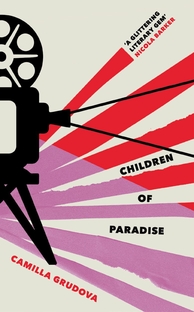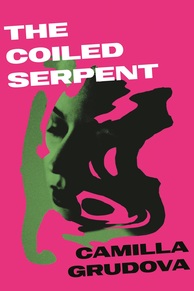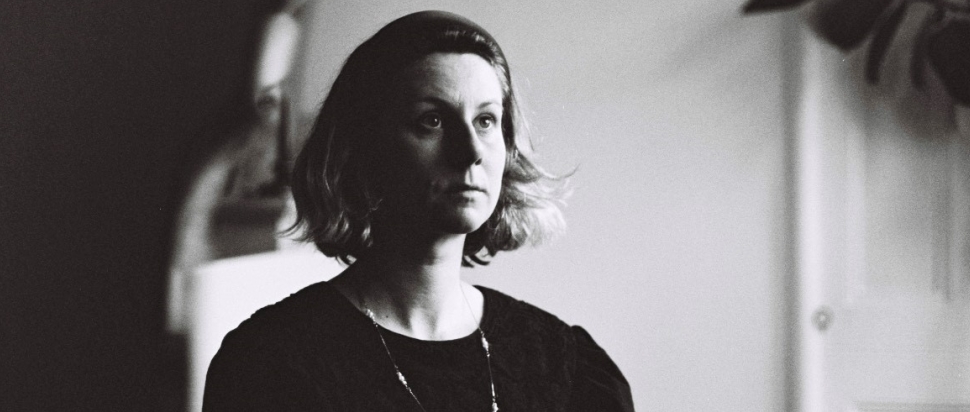Camilla Grudova on Children of Paradise and The Coiled Serpent
We chat to Camilla Grudova, author of the creepy Children of Paradise and upcoming short story collection The Coiled Serpent, about capitalist horror, British class politics, and why people can't flush the toilet
“I originally wanted to be a children's book writer,” Camilla Grudova says, swirling her straw around her iced coffee, “but I was a bit too dark.” It sounds like the set-up to a joke, the kind that would be told in a grainy 90s sitcom or stand-up set (“I wanted to be a cardiologist, but I didn’t have the heart”), but the Granta Best Young Novelist is, in spite – or perhaps because of – the squeamish body horror that she is known for, deadly serious. Her books may be perverse inquiries into wealth, power, and capitalism, yet the Canadian-born Edinburgh-based Grudova has never quite shaken the blatantness of children’s literature: the ways it can speak frankly to injustice, the ways it does not shy away from the bawdry nature of the body and its resistance to socialisation. “One of my favourites is The Young Visiters by Daisy Ashford,” Grudova continues, beaming. “It was a hit in the Edwardian era and is written by an 11-year-old girl and she's so perfect at describing like, perverted, pathetic men.”
Grudova and Ashford share a perennial fascination with the perverted, the pathetic, and the childlike; yet the moniker of “too dark” that Grudova now carries around is also very well-earned. Her books – the critically acclaimed short story collection The Doll’s Alphabet, the Women’s Prize for Fiction-longlisted Children of Paradise, and her upcoming short story collection The Coiled Serpent – are by turns creeping and shocking, revelling in the rot and fluid and collapse of the human body and its surroundings, compromising our imagination of ourselves as clean and contained beings. Children of Paradise, Grudova’s breakout book, follows a group of cinema ushers in a decrepit cinema and was inspired by the treatment of staff by a major cinema chain during the pandemic; in her hands, the bowels of the cinema become a Hadean journey into the horrors of the workplace, and the visceral, undignified imposition of waged labour.
“I truly feel that when you go to like, clean a bathroom, you realise no one is in control of the world,” Grudova says. “Capitalism is out of control. Humans think that they can solve all of these problems we have, like climate change, but they can't even flush the toilet.” In Children of Paradise, ushers find human fluids pressed into cinema paraphernalia and between seats; they are asked by their bosses to undertake increasingly repulsive tasks, all to maintain the paying customer’s illusion of their transcendence beyond the flesh. Abjection is a theme that runs through Grudova’s writing; capitalism and disgust are entangled bedfellows, as the slow creep of the former opens up space for the latter, the boundaries of her characters constantly imposed upon by the demands of their work.
“I remember at one job I had, we had to do these work videos,” Grudova says, “and in one of them they said: ‘Don't think bad thoughts about the customers’. And I was like, that's my intimate space. My notebook and my mind are precious spaces – those need to be private.” There is certainly an intimacy to this kind of abjection, an obligatory porousness of the boundaries between the self and work, that Grudova is fascinated by.

Children of Paradise. Credit: Atlantic Books.
“I guess it's a forced intimacy, where, especially in lower paid jobs, everyone has to set their dignity aside. But there's also the unwanted intimacy of customers, where you can become a vessel that they can put their anger or sadness or horniness into.” In her writing, this ontological breach finds expression through the abjection of the body; its proximity to decay and disgust articulating the slow death that capitalism itself engenders. “I’ve been described as scatological, which I find a bit reductive,” Grudova continues, “because I think we ignore the body and what happens to it in capitalism, but it's very present. And I think we need to acknowledge it.”
Grudova is appearing in the Edinburgh International Book Festival this month alongside author Olga Ravn in a panel aptly titled 'I Do Not Dream of Labour'; yet strikingly, labour in her books also extends beyond the workplace, taking in the conditions of systemic precarity that enable this abject exploitation. Having moved from Canada to the UK, Grudova is as captivated as she is repulsed by British class politics, and the stratification of money and labour that is felt in every aspect of society. “I feel there's something really dark to the system here, something very cannibalistic or vampiric,” she says. She talks about once visiting her agent’s office in Knightsbridge, where men stood smoking cigars in broad daylight, before pulling out her phone to pull up Raya, a dating app for the rich and famous. “It's really addictive,” she laughs. “There’ll be like celebrities on it as well, it's so insane. I don't come from that background, so I think I have this fascination with it all.”
This fascination finds particular expression in her upcoming short story collection The Coiled Serpent, perhaps her most British book to date. Narratives of workplace horror sit alongside tales of rented rooms swallowing up inhabitants, clusters of tenants who are declared dead as the story begins, and boarding school vignettes that mutate the sugar-sweetness of the Enid Blyton tradition. One particular story, titled Ivor after its much admired central character, follows a group of boys at a boarding school who mysteriously never leave – upperclassmen are pushed around in wheelchairs, while the younger boys curry favour for them in the suffocating tradition of the British public school system. The story was inspired, Grudova explains, by the early Alfred Hitchcock film Downhill, which follows a young man who is kicked out of boarding school and lives a tearaway life – moving to Paris, getting married – before being allowed back in.
“I was just like: ‘Wait, how old is he?’” Grudova laughs. “I think there are certain types of men in the UK who just look like they've never left boarding school. And so I wanted to write about that in a tangible way.” It is difficult to think of a more apt comment on the British political system than this magical realist fable of its origins, as the boy-men abuse each other, inhabit increasingly disgusting conditions and, in one memorable scene, have their face chewed off by a monstrous bug they raised from a small louse found on someone’s head. Capitalism, The Coiled Serpent understands, is a system that is found not merely in the workplace but in all of life, intervening on people’s intimacies and bodies and upbringings, degenerating any sense of separation between the public and private.

The Coiled Serpent. Credit: Atlantic Books.
“I'm always interested in institutions of some sort, whether a school or a workplace or the home and family and housing,” Grudova explains. “It's probably just because those are things in my own life – I'm constantly anxious about housing, for example, and so it comes up a lot in my work.”
It is strange, perhaps, to think of writing that is so generic – so heavily influenced by the Gothic, horror, and children’s literature – as also deeply personal, but Grudova’s writing is just that. Children of Paradise was inspired by her own time working as a cinema usher, and gained even more significance in the local community following the unceremonious loss of jobs in the wake of the Filmhouse’s closure; The Doll’s Alphabet and The Coiled Serpent are informed by her own ongoing relationship to precarity and work.
“For writers, there is a pressure to not be private and to give parts of yourself away,” Grudova says. “But I definitely feel like there have been times when I've overstepped the line of what I can use and what I can't use, and I think that's an ongoing struggle for every writer. There’s that Jean Rhys quote about how she would have rather been happy than to have written all these books. But it's like a compulsion I have to write about everything that happens to me – I can't help it.”
Yet there is also a sense of community building that such writing can have, that creates an intimacy between author and reader by articulating the conditions that we all labour beneath. “The best thing has been when people come up to me at events and just say: ‘Oh, you know, I had to clean up the worst shit for someone the other day,'” she laughs. “It’s just horrendous.” Art may not be tantamount to activism, but perhaps literature can, in this way, be an act of worker solidarity – of revealing the proximity we all share to capitalism’s gut-churning fallout.
The Coiled Serpent is out with Atlantic Books on 2 Nov
Find Camilla Grudova in conversation with Olga Ravn at Edinburgh International Book Festival on 13 Aug, 1.45pm
